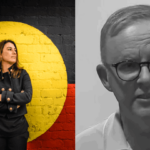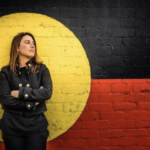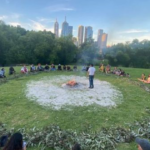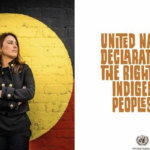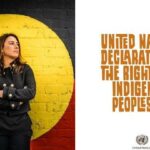Thorpe Calls for Human Rights Act, With Inclusion of Self-Determining Indigenous Rights

Labor has reopened the debate around a Human Rights Act. Australia is the only liberal democracy without rights protections enshrined in federal law. And many locals remain unaware of this, despite it being an open secret over the entire history of the 123-year-old nation of Australia.
Former High Court Justice Michael Kirby has explained that including a bill of rights in the Australian Constitution had been considered, but ultimately rejected for fear of undermining discriminatory laws and practices that applied to “disadvantaged Aboriginal people and the Chinese in Australia”.
Tasked with inquiring into the nation’s rights framework, the Parliamentary Joint Committee on Human Rights recently released its report and enacting a HRA is its primary recommendation, which is a far cry from the 2009 inquiry, which flagged enacting one, but almost as an afterthought.
As a human rights committee member, Senator Lidia Thorpe provided additional comments and recommendations, which are included in the report. And she supports a HRA, and her extra remarks are made to ensure the rights of First Nations people aren’t left out of the equation.
Indeed, that Indigenous peoples’ rights are not automatically upheld by regular human rights law-making processes has been acknowledged by the UN, and that Australia even exists is proof of its historical tendency to ride roughshod over the rights of Aboriginal and Torres Strait Islander peoples.
Feigned intentions
“As First Peoples, we do not just have inherent rights, we have an inherent responsibility to care for our mother, our Country, as our ancestors did,” Thorpe begins her statement. “I give my support to… the committee recommendation that the government legislates a federal Human Rights Act.”
“The very premise of British colonisation – including the theft of land and resources and the establishment of systems of colonial control such as government and prisons – not only inflicted gross human rights abuses on First Nations peoples, it actually required them to occur,” she added.
The Australian Human Rights Commission released a report recommending a HRA in early 2023. It suggested a dialogue model, which entails the three branches of government – the executive, the legislature and the judiciary – working together to uphold rights and to keep each other in check.
Attorney general Mark Dreyfus announced the rights inquiry just days after the AHRC report was released in March last year. And the human rights committee report agreed with the commission in favouring a dialogue model.
The second report recommendation is to recognise the rights in the International Covenant on Civil and Political Rights (ICCPR) and those set out in the International Covenant on Economic, Social and Cultural Rights (ICESCR) that are “immediately recognisable”.
This recommendation further stipulates consultation with Aboriginal and Torres Strait Islander peoples on the Indigenous rights to culture, as well as the right to a healthy environment and their right to self-determination.
And another suggestion was that if the Aboriginal provisions in the second recommendations aren’t met, then the UN Declaration on the Rights of Indigenous Peoples (UNDRIP) should be inserted into the definition of human rights within the Human Rights (Parliamentary Scrutiny) Act 2011 (Cth).
Upholding rights now denied
Thorpe provided extra recommendations seeking “to strengthen the rights of self-determination of Sovereign First Nations and protect vulnerable people from human rights violations” of the state. And they were also a response to the draft example Human Rights Bill 2024 included in the report.
The Gunnai Gunditjmara and Djab Wurrung politician made clear that the preamble mention of self-determination in the draft maintained colonial dominance. And she considers a standalone right to self-determination and one for the right to free, prior and informed consent should be included.
Thorpe introduced the United Nations Declarations on the Rights of Indigenous Peoples Bill 2022, which sought the Indigenous rights within the UNDRIP reflected in Australian law. And the bill was voted down in the Senate last December with the Greens and David Pocock in support of the bill.
The proposal would not have bestowed extra rights to the First Peoples of the continent as some might assume but rather it’s designed to uphold them in areas where they’re currently denied. This is what former UN Permanent Forum on Indigenous Issues expert member Les Malezer explained.
During a webinar after the Senate vote on the UNDRIP, Malezer outlined that he’d spent decades negotiating the UN original, and rather than create any new rights, it actually serves to uphold the universal human rights of Indigenous peoples, as prior treaty-making processes had failed to do.
Australia has ratified all seven core international human rights treaties including the ICCPR, the Rights of the Child and 2006’s Rights of People with Disabilities.
The UNDRIP, however, was the eighth rights document produced, and as Malezer put it, it merely sought to ensure that the rights that were being upheld for non-Indigenous people in the earlier conventions are upheld too for the Indigenous, which called for a different framing of these rights.
“Fortunately, because of the charter of the UN… the rights of peoples to self-determination has become a principle of rights in the world,” the Gubbi Gubbi and Butchulla man added.
“It’s that principle that Indigenous peoples have gained identity by the United Nations and that has been captured in the” UNDRIP.
Settler colonial politicking
The UNDRIP was put to the UN General Assembly in 2007, and 144 states voted in favour of its adoption, while only four states voted against it: Australia, New Zealand, Canada and the US. And all of these states, as Thorpe put it, were founded on the violation of Indigenous peoples’ rights.
Thorpe also pointed out in her additional comments that as the 1948 Genocide Convention was being drafted Australia argued against cultural genocide being included as a form of the crime. And with the assistance of Canada, NZ and the US, the group this time managed to see it dropped.
The senator opposed last year’s Voice proposal, as instead of providing self-determination, she deemed it a powerless advisory body that would see First Nations people being able to provide suggestions on affairs that impacted them, while the government wouldn’t be required to listen.
However, despite its lack of power, white Australia thought the Voice idea, an advisory body to government, was all too powerful and it voted the proposal down in October.
And federal Labor, who’d championed the referendum and the cause of First Nations people, then promptly voted down Thorpe’s UNDRIP bill without a thought, even though it would have provided tangible rights, signalling that all the Voice was really about was maintaining that status quo.



